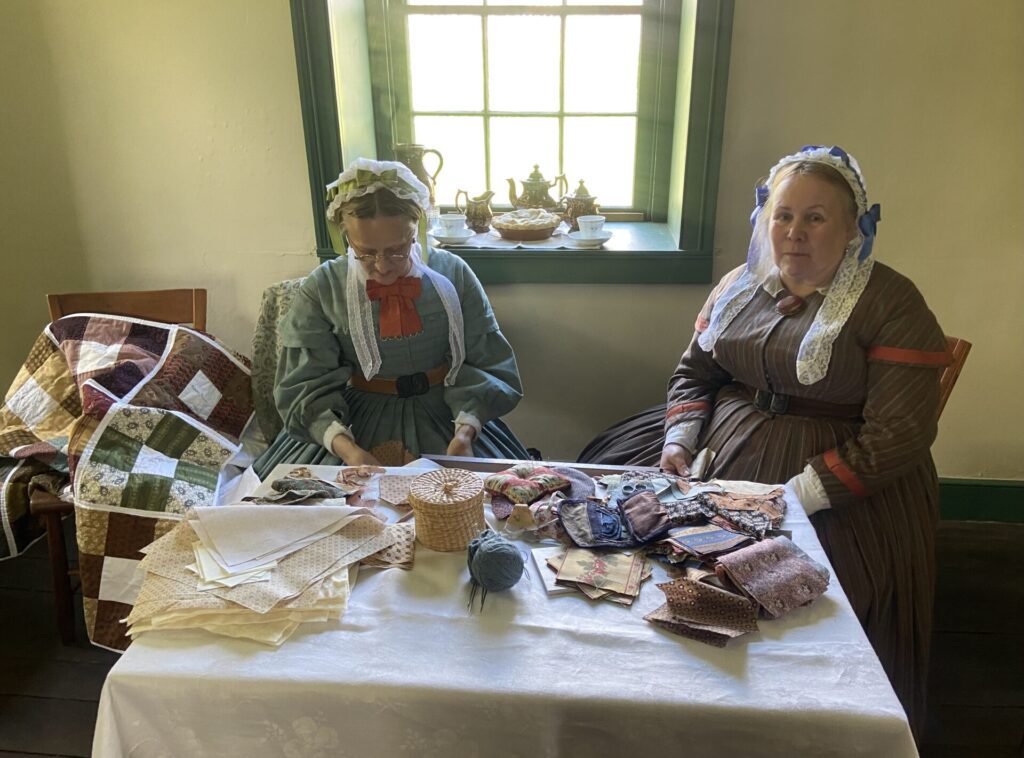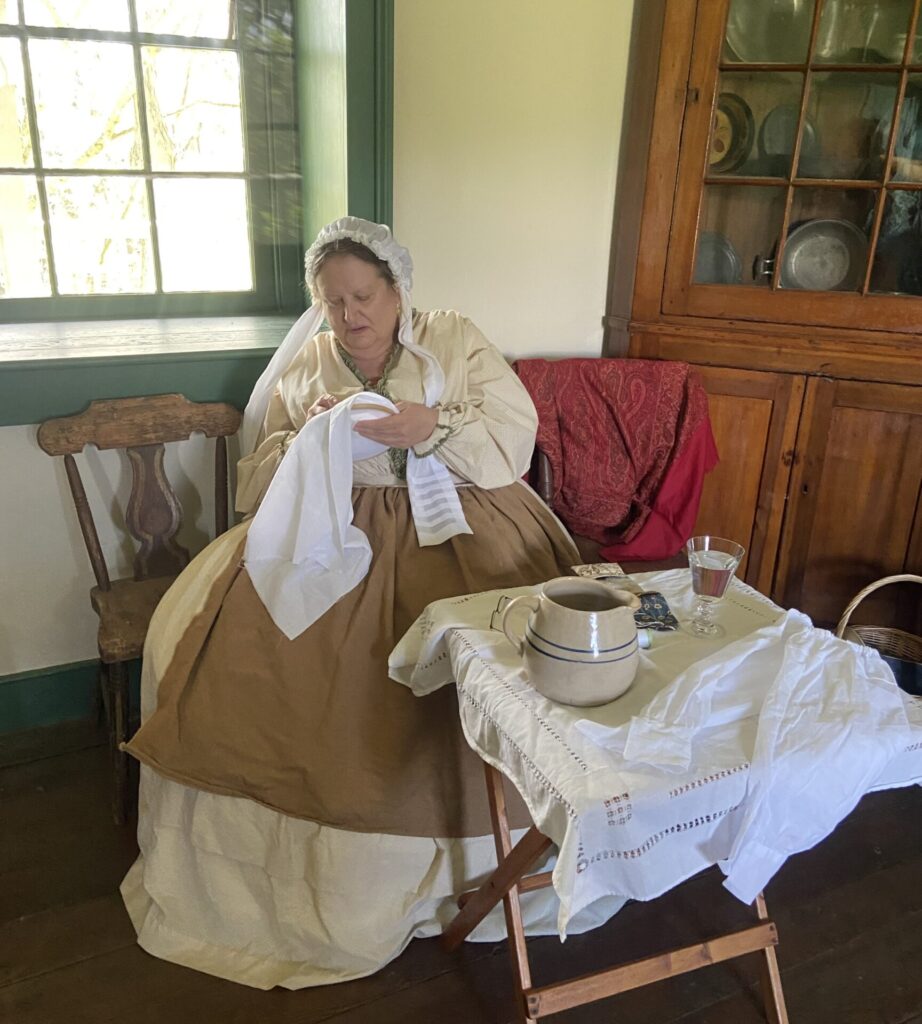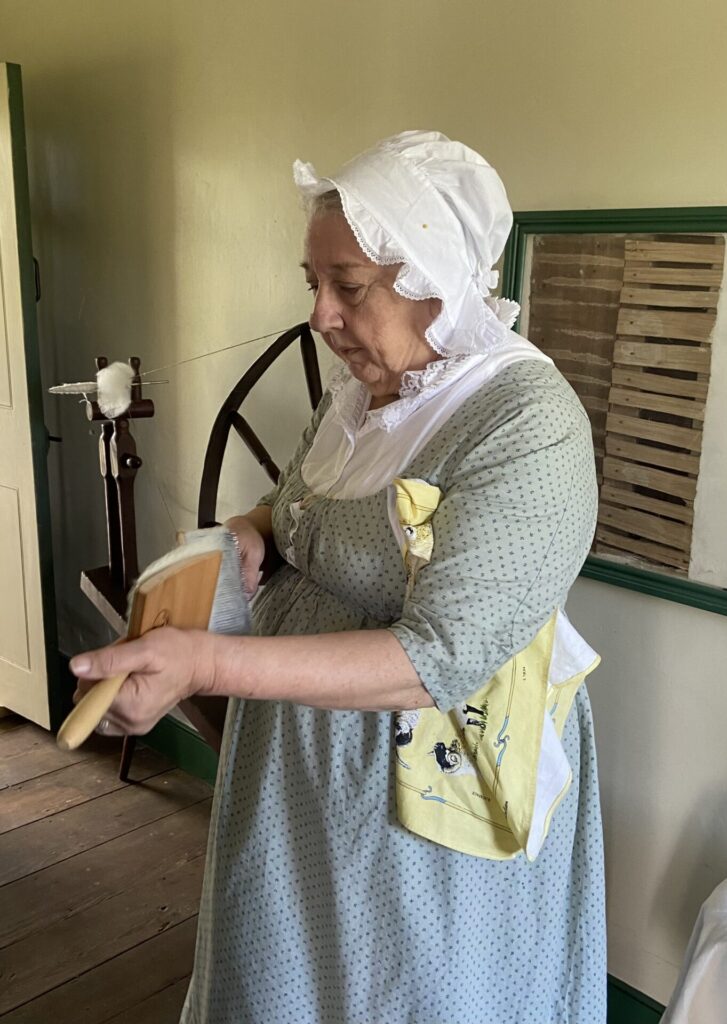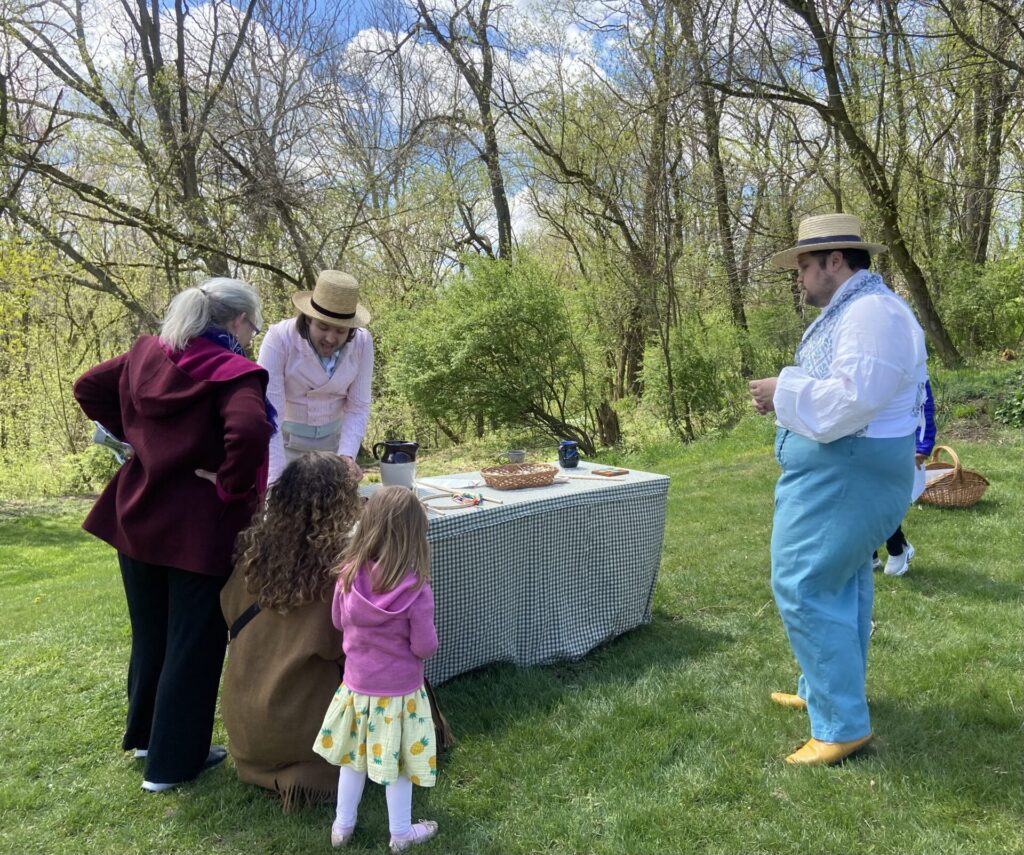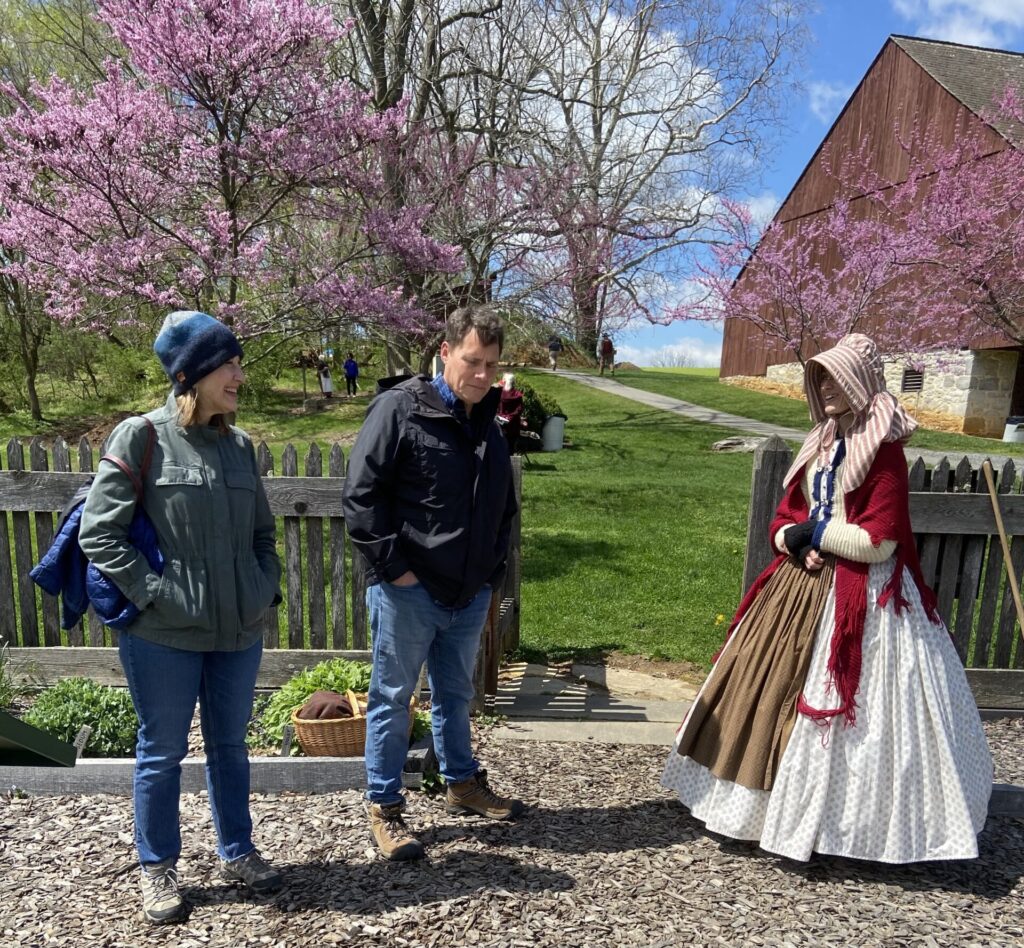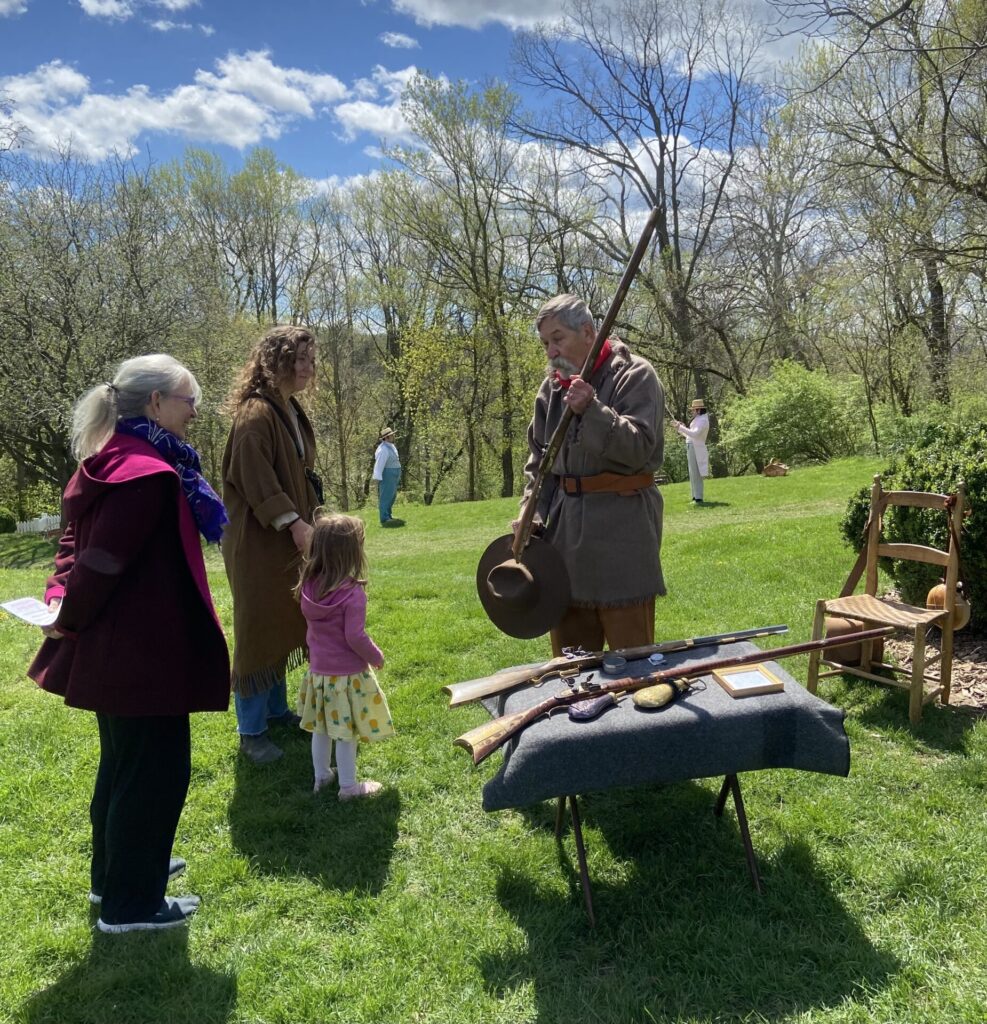Guests explored the historic Fahnestock Farmstead as Renfrew Museum and Park in Waynesboro kicked off its season with the 49th opening day April 13.
Free, family-friendly activities were offered at the farmstead at the southern end of Renfrew.
Historic interpreters guided visitors during tours of the first floor and lower level of the 1808 Fahnestock House. Topics included spring cleaning, spinning, sewing, child care, cooking and food preservation, as well as cooking demonstrations over the open hearth.
The making of hand split rails from hardwood logs using traditional mid- 19th century tools and techniques was demonstrated. Antique farm machinery also was displayed.
Guests of all ages participated in games and amusements familiar to Early American families.
Visitors also learned about the design of a Pennsylvania German four-square garden, along with mid-19th century heirloom variety flowers, plants and vegetables.
Also offered was an interpretation of the Pennsylvania Longrifle, the first American firearm developed by Pennsylvania Germans and used for protection, sport and hunting on the Early American Farmstead.
An information booth to learn about the progress of the Renfrew Mill was available to guests. The mill, located north of the original Royer Gristmill, is a 50- by 50-foot three-story timber frame and masonry structure. It will contain full-functioning millworks driven by a single Fitz style overshot waterwheel powered by a recirculating pump. Custom millworks to be built on site by master millwright Ben Hassett will drive two sets of millstones to grind grain and demonstrate historic milling processes to Renfrew’s visitors.
Renfrew completed Phase I of the project this spring and is raising $1.5 million to complete Phase II. The cost of the project, originally estimated at $2.2 million, swelled to $5 million following the Covid-19 pandemic. The project has been partially funded by a $2.5 donation by benefactor James Luty, a $1 million bridge loan from Patriot Federal Credit Union of Waynesboro and a $1 million Redevelopment Assistant Capital Program (RACP) grant awarded through the Pennsylvania Office of the Budget.
